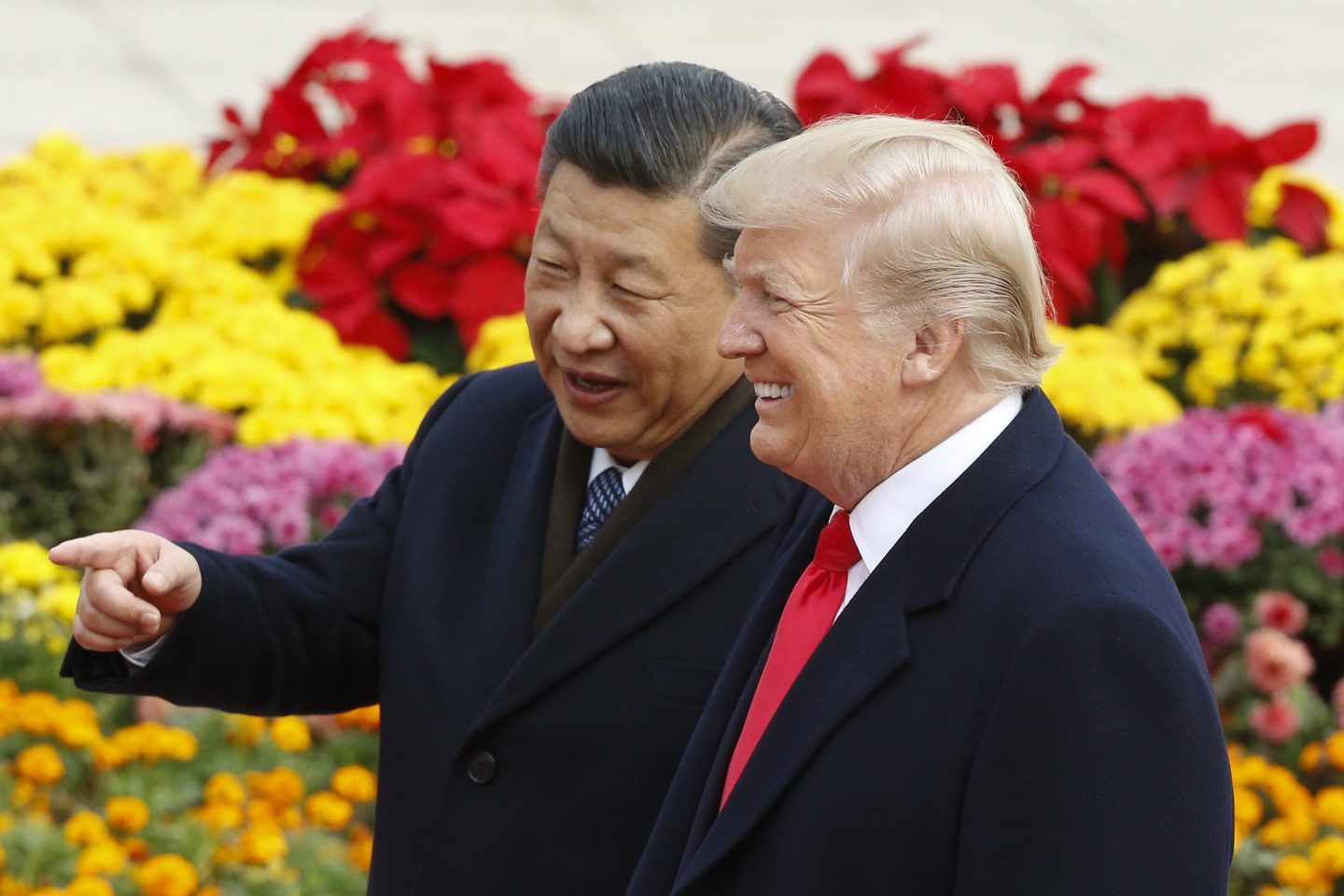Financial markets suffered a rerun of their swoon in April, when “Liberation Day” tariffs shocked global investors, signaling that his latest China duties may end up hurting the U.S. more than their intended target.
On Friday, President Donald Trump said he will impose an additional 100% tariff on China and limit U.S. exports of software, after China restricted its exports of rare earths.
The S&P 500 sank 2.7%, its worst selloff since April 10. Meanwhile, the U.S. dollar index plunged nearly 0.7% as Treasury yields fell, while gold prices surged more than 1.5%.
“Markets are again thinking that the US holds the shorter straw in the tariff fight with China,” Robin Brooks, a senior fellow at the Brookings Institution, wrote on Substack on Saturday.
China has a stranglehold on rare earths, producing more than 90% of the world’s processed rare earths and rare earth magnets. That has served as a key source of leverage over the U.S.
The divergence between the dollar and gold is notable because stock market selloffs historically have sent investors to the dollar as a safe haven.
But just like in the fallout from Liberation Day, that dollar pattern didn’t hold, and gold instead was the preferred refuge from trade war chaos.
Brooks pointed out that the dollar had been stable in recent weeks even as gold prices soared, notching record high after record high. That ended with Friday’s China tariff announcement from Trump.
“This is now the second instance where markets are trading tariffs as backfiring on the US, not on the rest of the world,” he added.
Considering how stocks, currencies and gold reacted on Friday, Brooks said the overall picture is that the dollar actually looks more vulnerable now than it did in early April.
In particular, he pointed to how much the dollar fell when weighed alongside the steep drop in stocks, which ordinarily boosts the greenback amid a flight to safety.
“The fact that this didn’t happen and that gold prices rose more than on ‘Liberation Day’ is concerning,” Brooks warned. “The Dollar is not looking healthy.”
Before the tariff flare-up, U.S.-China trade talks had been progressing after Trump reached deals with the European Union, Japan, South Korea and other top trading partners.
But tensions remained, including on the issue of rare earths while the U.S. had moved to restrict other countries’ exports of semiconductor-related products to China.
Also this week, the U.S. announced port fees on Chinese ships, prompting Beijing to impose a similar fee on U.S. ships docking at Chinese ports. China also launched an antitrust investigation into U.S. chipmaker Qualcomm.
Then on Thursday, China’s commerce ministry said that starting on Dec. 1 a license will be required for foreign companies to export products with more than 0.1% of rare earths from China or that are made with Chinese production technology.
“In other words, the United States can cut China off from the chips of today, but China can make it vastly harder to build the chips and other advanced technologies of tomorrow,” Michael Froman, president of the Council on Foreign Relations and a former U.S. Trade Representative, said in a post on Friday.













